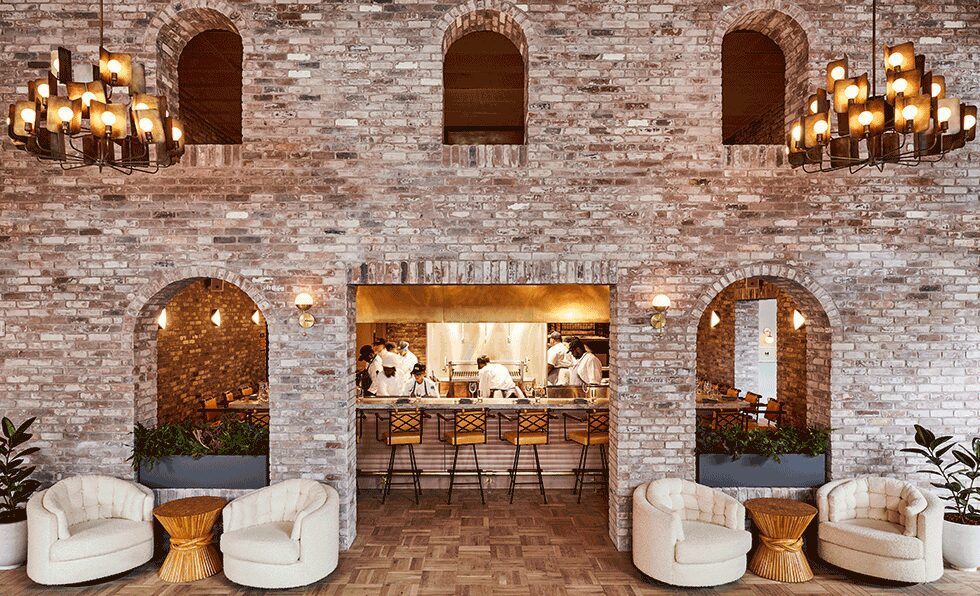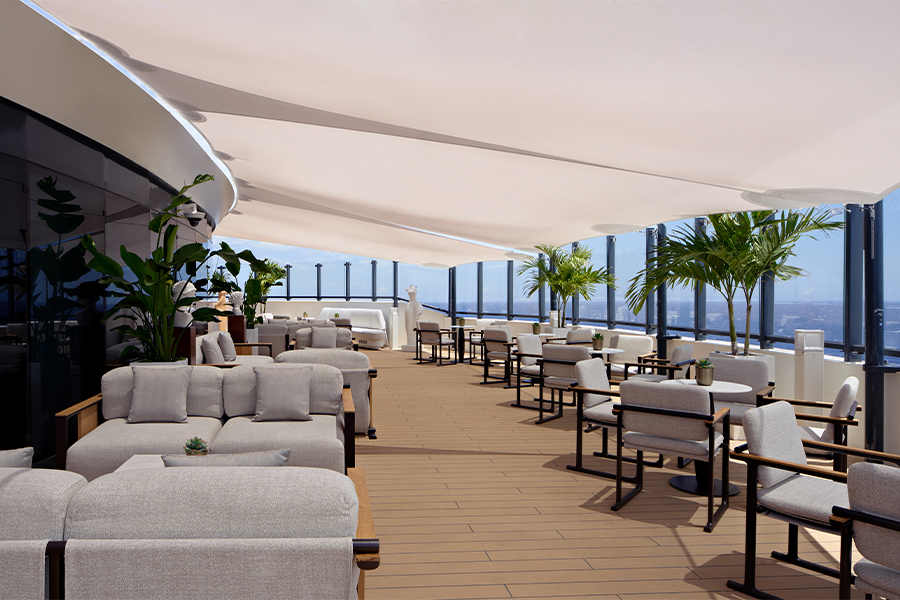Barbara Kruger asks audacious questions in Los Angeles, checkout times get a flexible update, and Louis Vuitton ventures into the hospitality scene. All this and more in this week’s Five on Friday.
Hotels take a flexible approach to checkout times

Hotels are allowing more flexible check-in and checkout times for a better guest experience, according to The New York Times. The Flexy Time program at the Hoxton, for instance, allows guests to pick and choose their check-in and checkout time. To manage the operations, the brand requires a 72-hour advance notice. Asbury Ocean Club Hotel and the Asbury Hotel, both in Asbury Park, New Jersey, have adopted the trend, reaching out to guests a week in advance to get their arrival times and coordinating housekeeping from there. At the Standard, meanwhile, the brand charge 5 to 10 percent of the room rate for its flexible Standard Time program, which started in 2016. “We found rigid check-in and checkout times antiquated and inhospitable,” Amar Lalvani, chief executive of Standard International Management, the parent company of Standard Hotels, told the paper.
Guests will become one with nature at this eco-friendly resort

Offering guests an up-close and personal experience with the wild nature of Southeast Asia, the Mandai eco-luxury resort operated by Banyan Trees Hotels & Resorts will arrive in Singapore in 2023 as a holistic, immersive experience, according to the Insider. Located within the island-state’s Mandai wildlife district, the property will feature a biophilic design by locally based WOW Architects, which was inspired by the local flora and fauna. The 338 rooms—comprising standard hotel rooms, elevated cabins, and 24 elevated treehouses designed in the shape of seed-pods—will be embedded into the resort, while a series of walkways high above the ground will allow passage of wildlife.
Caroline Baumann forced out of Cooper Hewitt

Caroline Baumann was forced to resign from her position as design director of Cooper Hewitt, Smithsonian Design Museum in New York following an internal investigation into how she acquired her wedding dress and space for the ceremony, writes Vanity Fair. Of issue is Baumann’s Samantha Sleeper-designed wedding dress that usually retails for $3,000; Baumann paid $750. The gown’s designer defended the price of the dress, noting it was a simple silhouette. In addition, Baumann wasn’t charged for her use of the LongHouse Reserve in East Hampton, New York, a nonprofit founded by Jack Lenor Larsen, a friend of Baumann’s. The sudden departure of Baumann has resulted in the resignation of six powerful trustees from the museum’s board, including designer David Rockwell, in protest of the decision. Baumann had been with the museum since 2001.
Louis Vuitton ventures into the hospitality scene in Japan

French fashion powerhouse Louis Vuitton has entered the culinary scene with two sumptuous concepts in Osaka, Japan. Helmed by famed Japanese chef Yosuke Suga, Le Café V and Sugalabo V are located at the top floor of the four-story Louis Vuitton Midosuji flagship store. With interiors conceived by Japanese architect Jun Aoki in collaboration with New York-based based architect Peter Marino, Sugalabo V—an offshoot of Tokyo’s famed Sugalabo—is hidden behind a speakeasy-like panel door and punctuated with dark wood panels and leather stools, while the sleek Le Café V cocktail bar features a spacious outdoor terrace. According to a statement from Louis Vuitton chairman and CEO Michael Burke, the new venues could be the first in a wider rollout for the French fashion house.
Barbara Kruger asks the tough questions

Composed of 20 provocative questions, like “Who do you think you are?” and “Is there life without pain,” conceptual American artist Barbara Kruger has taken over Los Angeles with her series of burning questions during Frieze Week LA. Found across the city’s landmarks, billboards, and NeueHouse Hollywood, where Frieze took place, the citywide public art project aims to challenge viewers into confronting themselves. “There are different conversations happening today than there were in 1990, but the most pressing ones are equally important. Her work guides people to listen to those conversations and think about their own experiences,” Bettina Korek, executive director of Frieze Los Angeles, tells Wallpaper.



